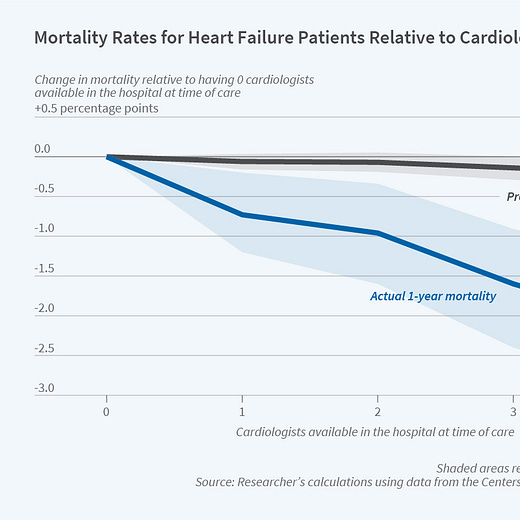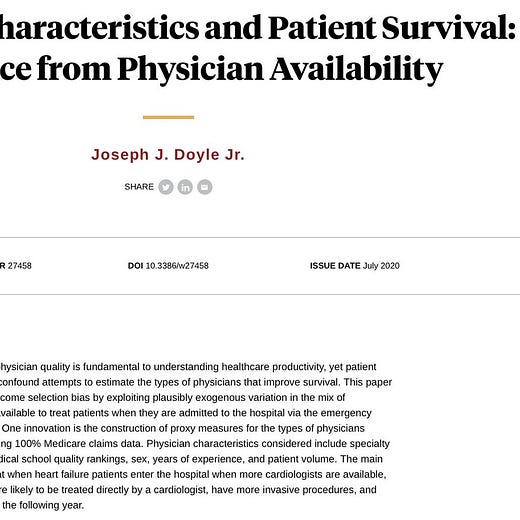Best of #econtwitter - Week of December 27, 2020
Dec 27, 2020
Welcome readers old and new to this week’s edition of Best of Econtwitter. Thanks to those sharing suggestions, over email or on Twitter @just_economics.
Light(er) holiday week edition!
Paper summary threads

Logan Strother@LoganRStrother
I’m very excited to share some new work, with @SpencerPiston, @EGolberstein, @sarahgollust, and @DanielEis7, out today in @PNASNews: College roommates have a modest but significant influence on each other’s political ideology pnas.org/content/early/…
1/
pnas.org
College roommates have a modest but significant influence on each other’s political ideology

9:35 PM · Dec 21, 2020
142 Reposts · 444 Likes
^“the overall sample was slightly more conservative after 1 year of college than it was before”?

Alex Imas@alexoimas
Really interesting paper by Billings, @EricChyn @k_haggag.


AEA Journals @AEAjournals
Forthcoming in AER: Insights: "The Long-Run Effects of School Racial Diversity on Political Identity" by Stephen B. Billings, Eric Chyn, and Kareem Haggag. https://t.co/Y8mh2Q70Y2
1:33 PM · Dec 23, 2020
4 Reposts · 30 Likes

Dana Shaat@ShaatDana
Sneak Peek 👀 Coeducation led to a decrease in the proportion of women majoring in STEM fields. We find No evidence of selection or role model effects.

3:13 PM · Nov 19, 2020
3 Reposts · 6 Likes

Arpit Gupta@arpitrage
New paper at the JPE: students make really important long-term decisions without very much information about the earnings of different careers, which we should probably give them (even if students also value non-pecuniary aspects of careers)
journals.uchicago.edu/doi/10.1086/71…

10:59 PM · Dec 21, 2020
60 Reposts · 307 Likes

Nathan Lane@straightedge
We spent years collecting news on murdered environmentalists across the globe.
AND coding the multinationals whose projects were involved in these assassinations.
Our new study w/ @DKreitmeir & @PaulRaschky explores how markets respond to high-profile human rights abuse. 1/N

2:56 PM · Dec 23, 2020
337 Reposts · 1.04K Likes

Daniel Björkegren@danbjork
The punchline: allowing an additional competitor in Rwanda’s mobile phone system earlier could have reduced prices and increased incentives to invest in rural towers, increasing welfare by the equivalent of 1% of GDP. (2/15)
2:01 PM · Dec 21, 2020
2 Reposts · 14 Likes

Sandy Black@Econ_Sandy
New WP! Where Does Wealth Come From?
Important ? to consider when thinking about inequality.
(w/Devereux, @FannyLandaud, and Salvanes)
If two people have same income but different spending (and hence different wealth) is that an unequal society?
nber.org
Where Does Wealth Come From?

1:54 PM · Dec 21, 2020
46 Reposts · 163 Likes

Jeff Larrimore@jefflarrimore
Including transfers and using post-tax income increases the income share of the bottom half of the distribution and offsets the declines in their market income since 1989 (5/10)

1:26 PM · Dec 23, 2020
3 Likes
^compare with Piketty-Saez-Zucman

Stefanie Stantcheva@S_Stantcheva
Very interesting new evidence that sector-focused training programs generate large & persistent earnings gains (11 to 40%!) by getting workers into higher-wage sectors, from @lkatz42 @jondr44, Richard Hendra, & Kelsey Schaberg @nberpubs.

Lawrence Katz @lkatz42
Sectoral employment programs generate large earnings gains in multiple RCTs through training in transferable and certifiable skills and reductions of employment barriers to high-wage sectors -- see our new @nberpubs working paper https://t.co/jQVcolS06p
5:55 PM · Dec 27, 2020
9 Reposts · 52 Likes

Matthew Yglesias 🍦@mattyglesias
It's good to see a cardiologist during your heart attack
nber.org/papers/w27458


2:01 PM · Dec 27, 2020
11 Reposts · 114 Likes

Robert Dur@DurRobert
The Ph.D. Origins of Economics Faculty: edworkingpapers.com/sites/default/… by @toddrjones and Arielle Sloan
Least diverse: Harvard and MIT, where 60% of faculty holds a PhD from Harvard or MIT
More diverse: Yale and Chicago, where more than a third comes from programs outside of the top



6:37 PM · Dec 27, 2020
29 Reposts · 91 Likes

Peter Hull@autoregress
Just posted a new working paper, with @metrics52, @prof_parag, and @c_r_walt
It’s called “Simple and Credible Value-Added Estimation Using Centralized School Assignment”
bit.ly/2WLeFmF
Here's a short summary thread 👇

8:04 PM · Dec 27, 2020
13 Reposts · 43 Likes

David Broockman@dbroockman
New draft paper: "Does Affective Polarization Undermine Democratic Norms or Accountability? Maybe Not" (w/ @j_kalla & @seanjwestwood)
Would love comments! Draft is here: osf.io/9btsq/.
For those who want a quick summary, a thread... 🧵 (1/n)

4:46 PM · Dec 22, 2020
91 Reposts · 289 Likes
Job market papers

Zachary Bleemer@zbleemer
New (job market) paper: Quasi-experimental and structural analysis of novel administrative data shows that broadening public university access for lower-testing students can promote economic mobility without efficiency losses. A thread. zacharybleemer.com/wp-content/upl… #EconTwitter

6:32 PM · Dec 21, 2020
60 Reposts · 237 Likes
Interesting discussions

Brian Albrecht@BrianCAlbrecht
Frustrating, common referee response: "the results are obvious from the assumptions."
Okay? Had you thought of laying out these assumptions? Have you seen someone else?
I guess I need to make my model more confusing?
2:51 PM · Dec 22, 2020
1 Repost · 121 Likes

Peter Hull@autoregress
What's the best paper you read this year?
3:02 AM · Dec 24, 2020
36 Reposts · 271 Likes

